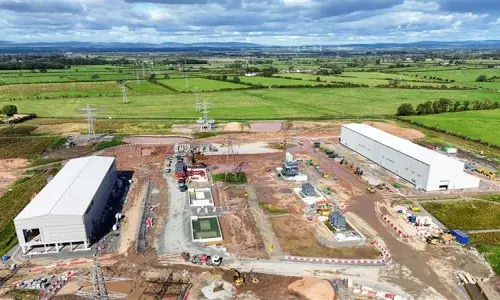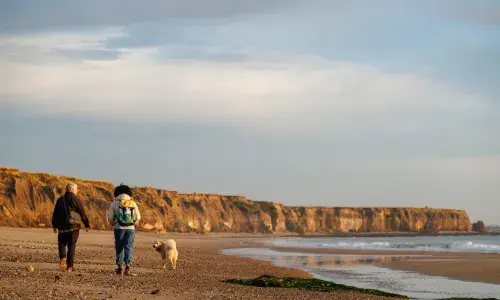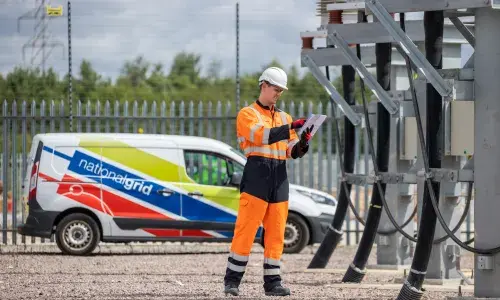
Engineers of the future at East Riding of Yorkshire primary school inspired by National Grid
-
National Grid and Groundwork Yorkshire organised a day of volunteering and STEM related fun and learning for pupils at Reedness Primary School near Goole, East Riding of Yorkshire.
The pupils of Reedness Primary School were delighted when National Grid and Groundwork Yorkshire visited them last week to volunteer as part of a CSR (corporate social responsibility) day, undertaking a range of soft landscaping tasks to improve the outside area of the school.
The National Grid team also gave an interactive presentation to pupils about where our energy comes from today and where it will come from tomorrow. Marshmallows and spaghetti were an essential building block!
25 pupils between Year 2 and Year 6 learnt about the lifecycle of electricity and how it is safely generated and then delivered to their home and school. All children had the opportunity to take part and ask questions and participated with much enthusiasm and wonder.
National Grid recently hosted a public consultation about a new 90 km power line proposed between Humberside and High Marnham, much of which will run alongside an existing power line. It's needed to facilitate the connection of clean, green energy, including new offshore wind that is planned in the area. National Grid always looks to provide opportunities to the local communities in which it works, particularly to children and young people. Inspiring the next generation to take an interest in science, technology, engineering and maths (STEM) is a very important aspect of National Grid’s community involvement.
National Grid Project Director Rachel Tullis said: “We were delighted to be invited to Reedness Primary School both to volunteer and help the children understand where the energy they use is coming from. Days like this spark an interest in engineering which we hope will last long into the future and lead to careers in STEM related sectors.”
Amanda Scrimgeour, Programme Manager and Life Long Learning Lead for Groundwork Yorkshire (and a Governor at Reedness Primary School) said: “We are thrilled that the National Grid are spending a day with us at Reedness. The work they have completed in one day has made such an impact on how the grounds look and feel, we have even built some quiet space and friendly habitat for nature. Having a STEM session has been a bonus, and great fun – and will ensure that children talk at home raising aspirations and awareness of opportunities that exist beyond the marshland villages as they progress through their educational life.”
Matthew Herbert, Headteacher said: "We are pleased that National Grid have visited the school to work with us. We are always looking for opportunities to inspire the children and the STEM sessions definitely tick all the boxes. The children at our school love learning from hands-on activities and understanding how things work as well as learning about where energy comes from. National Grid have also kindly volunteered to support us with projects around our school as we try to utilise as much of our outdoor space as possible. We thank them and Groundwork Yorkshire for their time and look forward to working together in the future on other projects around the school.”
Contact for media information only:
Helen Blake +44 7790 824788
Notes to Editors
National Grid held a public consultation earlier this year on proposals including 90km of new power line between a new substation near Creyke Beck, North of Hull and a new substation at High Marnham in Nottinghamshire, much of which runs parallel to an existing overhead power line. The upgraded infrastructure will be able to transport 6 gigawatts of power – enough to power 6 million homes. A further stage of public consultation will follow in 2024, where detailed proposals shaped by feedback will be shared.
The project forms part of The Great Grid Upgrade, the largest overhaul of the grid in generations, with new infrastructure across England and Wales helping the UK meet its net zero ambitions, reduce its reliance on fossil fuels also contribute to lower energy bills over the long-term.



